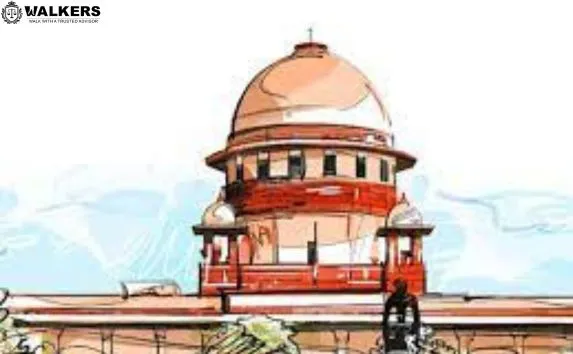


The Supreme Court, which is overseeing the investigation of 22 alleged 'fake encounters' by Gujarat Police between 2002 and 2007, announced on Monday its intention to examine the state's reluctance to disclose records of three encounters to the petitioners. According to the report presented by retired Supreme Court judge Justice HS Bedi on February 26, 2018, there was initial evidence of wrongdoing in three of the 17 encounter killings in Gujarat during that period. Justice Bedi's report, which was filed under seal, recommended that nine police officers implicated in the incidents be prosecuted.
On March 2, 2012, the Supreme Court appointed Justice Bedi, a former SC judge, as the Chairman of the Monitoring Committee. The Committee was tasked with overseeing the investigation carried out by the Special Task Force (STF) formed by the Gujarat government into cases of custodial deaths. The report covers only the 17 cases that were specifically referred to the STF.
The Supreme Court's involvement came after journalist B G Verghese (now deceased), poet-lyricist Javed Akhthar, and social worker Shabnam Hashmi filed petitions alleging that the police encounters were fake and state-managed.
A Bench consisting of Justice SK Kaul and Justice Ahsanuddin Amaullah listed a matter on Monday to ensure that the State of Gujarat had complied with its order dated 18.01.2023. In the previous order, the Bench had instructed the State Government to extract the record related to three encounters, make copies, and distribute them to all parties. The Bench also asked for separate paper books for the three encounters for convenience.
During the hearing, Solicitor General of India, Mr. Tushar Mehta, representing the State Government, informed the Bench that the government had complied with the Court's order. However, he expressed reservations about sharing the record with the petitioner. Senior Advocate, Mr. Mukul Rohatgi, representing the officers involved in the 'fake' encounters, supported the Solicitor General's submission on this matter.
After considering their arguments, the Bench recorded in the order that it would need to "address this issue." To do so, it directed that the matter be listed on the regular board on July 12, 2023.
During the hearing, Solicitor General of India, Mr. Tushar Mehta, representing the State Government, informed the Bench that the government had received letters from the officers involved in the investigation, requesting that the record of the investigation carried out under the Cr.P.C. not be shared with the petitioners. He argued that the record could only be shared with potential accused, the Court, and the Public Prosecutor. Mr. Mehta asserted that the petitioners had no locus in the case and were strangers with oblique motives.
Justice Kaul asked Mr. Mehta about the State Government's stand on the implementation of the report submitted by Justice Bedi, who was appointed by the Court to conduct an inquiry. Mr. Mehta responded that they had something to say about the report.
Mr. Rohatgi, representing the officers involved in the 'fake' encounters, also opposed the sharing of records of the three encounters with the petitioners. He argued that after the report had been submitted, the petitioner had no role to play, and it was now between the Court and the accused officers. Mr. Rohatgi vehemently objected to the sharing of documents with anyone who was not the Public Prosecutor.
The Solicitor General urged the Bench to hear all parties on the issue of locus at the very beginning, asserting that the petitioners had no right to access the material on record. The Bench recorded the arguments and reserved the decision on the matter.
During the hearing, Mr. Mehta argued that the record of the investigation carried out under the provision of the Cr.P.C. cannot be shared with the petitioners as they are strangers with an oblique motive. He stated that the record can only be shared with potential accused, the Court and the Public Prosecutor. Mr. Rohatgi supported Mr. Mehta's argument and vehemently objected to the sharing of records of the three encounters with the petitioners, stating that the report is now between the Court and the accused officers.
In response, Mr. Bhushan and Ms. Ramakrishnan argued that guidelines laid down in the PUCL v. State of Maharashtra judgment should be followed in cases of killing in police encounters, which require the registration of an FIR and an independent agency to carry out the investigation.
The Bench acknowledged the need to hear arguments from all parties involved and scheduled the matter for further hearing in July 2023. Mr. Mehta also referred to previous court judgments stating that strangers cannot have access to such documents, and emphasized that selective public interest should be a relevant consideration for sharing the record.
[Case Title: BG. Verghese v. UoI And Anr. WP(Crl) No. 31/2007]
TAGS: Supreme Court judgment appeal petitioner respondent order legal argument hearing evidence witness cross-examination.